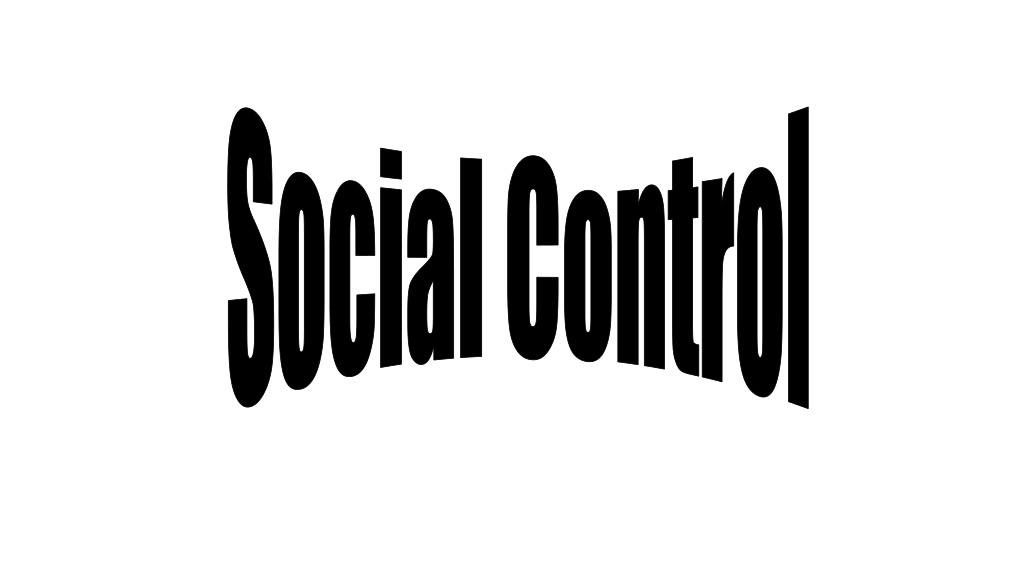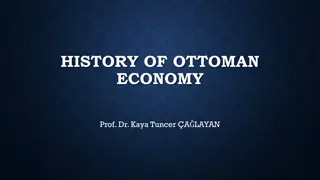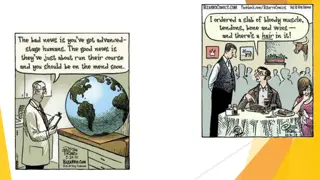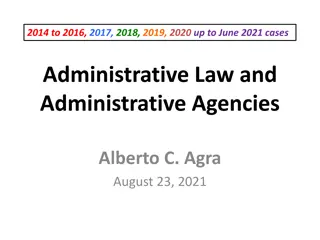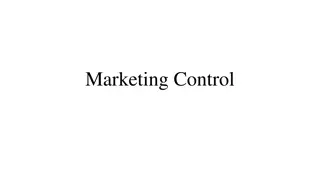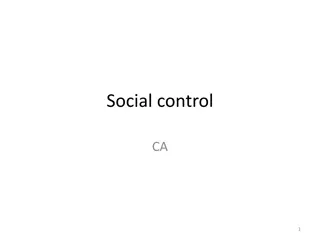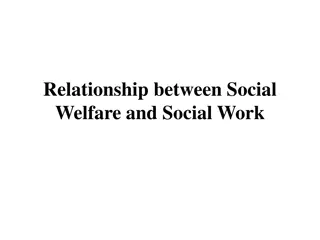Social Control Through Agencies and Influences
Delve into the concept of social control, exploring formal and informal mechanisms, and why they are essential for societal harmony. Discover how we learn to obey rules, the role of peer groups, education, media, and other influences in shaping behavior.
Download Presentation

Please find below an Image/Link to download the presentation.
The content on the website is provided AS IS for your information and personal use only. It may not be sold, licensed, or shared on other websites without obtaining consent from the author.If you encounter any issues during the download, it is possible that the publisher has removed the file from their server.
You are allowed to download the files provided on this website for personal or commercial use, subject to the condition that they are used lawfully. All files are the property of their respective owners.
The content on the website is provided AS IS for your information and personal use only. It may not be sold, licensed, or shared on other websites without obtaining consent from the author.
E N D
Presentation Transcript
Agencies of Social Control How do we learn to obey social rules? Objectives: To understand what sociologists mean by formal and informal social control. To understand how formal and informal control works To understand why formal social control is needed
Why do we obey rules? What is going to influence this new born baby to learn and obey society s rules???
Education Peer groups Media The police Religious belief Legal systems Youth clubs Family Work and careers
Objectives. To understand the meaning of social control and how it relates to society. To be able to define formal and informal social control, and provide examples of each.
Social control: the definition. Social Control is the ways in which society tries to ensure that it s members do not break norms or commit crimes. Social control makes people conform to the rules of society.
Informal Social Control. Informal social control is how we are persuaded to conform through being taught what is acceptable. This happens through socialisation and occurs within:
Formal Social Control: The definition. Formal Social control is the creation of laws and rules to control people s behaviour. The agencies of social control include:
The police How do the police act as agencies of social control?
The government. How does the government act as an agency of social control?
The judiciary. Or the court system. How do they act as an agency of social control?
The Penal System. How does the prison system act as an agency of social control
Do we need Formal Social Control? In your books, answer the following Questions. 1. Think: why do some people never come into contact with any of Think: why do some people never come into contact with any of the agencies of Formal Social Control? the agencies of Formal Social Control? 2. What does FORMAL & INFORMAL mean for sociologists? Think: when we looked at formal and informal learning in the Think: when we looked at formal and informal learning in the education unit, what did this mean? education unit, what did this mean? Why do we need Formal Social Control?
Agencies of Social Control How do we learn to obey social rules? Objectives: To understand what sociologists mean by formal and informal social control. To understand how formal and informal control works To understand why formal social control is needed
